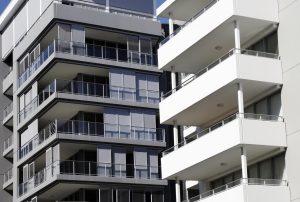Security is the first order issue of the state. Yet security goes beyond just the prevention of invasion or civil conflict. Security is also personal; it is food security, healthcare, energy security, and, incredibly importantly, the security of a home. Australian governments have understood this concept of human security with food, healthcare, and energy; they know that a lack of affordability for any of these would be disastrous to their democratic fortunes. Housing remains the outlier.
Australia has some of the least affordable housing in the world. According to Demographia’s 2023 International Housing Affordability survey, Sydney is the second most expensive city for housing in the world, after Hong Kong, and Melbourne is ranked ninth, while Adelaide and Brisbane are both in the top 20. Given that Australia is one of the most highly urbanized countries in the world – the combined populations of Sydney and Melbourne amount to 40 percent of Australia’s population – the lack of affordable housing in its major cities should be considered a national crisis.
But it isn’t. At least not for the country’s politicians. Australia’s political class, across all political parties and at all levels of government, from council to state to federal, are perfectly comfortable with the cost of housing – both for purchase and for rent. They see both their own personal interests in increasing the value of their own properties – many politicians are considered “property barons” – and their political fortunes in protecting the values of their constituents’ properties.
Australia remains a home-owning nation, which is why politicians see no need to act. The 2021 Census indicated that around 67 percent of the population are homeowners, down from 70 percent in 2006. However, much of this consistent percentage is maintained from the inheritance of wealth, rather than younger people being able to afford to purchase property on their own. Around 80 percent of inheritances go to people aged over 50, with the most common age bracket to be 55-59.
This structure to the housing market means that there is just a replenishment of an older propertied class, who expect their property prices to consistently increase like those of their parents. For younger Australians, the promise of the fruits of adulthood is often deferred until they are approaching retirement themselves. As an approach to creating opportunity and allowing younger people to flourish this is fundamentally flawed. As a public sentiment of people essentially waiting for their parents to die before they can achieve personal security, it is thoroughly morbid.
On an individual level, the current cost of housing is a burden that younger people should not have to carry, but more broadly the high cost of housing is a failure of national and subnational strategy. For cities to function well, essential workers like nurses, teachers, cleaners, and hospitality staff must be able to secure housing in the areas close to where they work. Yet often these people are pushed out to the fringes of cities, where public transport is sparse and driving to areas of employment is long and traffic-bound.
In a broader economic sense, the high cost of housing – either to purchase or rent – reduces the ability of individuals to pursue careers of choice, and careers where their passions lie. For a country that is lacking in a substantial ideas economy the cost of housing is an extraordinary economic opiate. It prevents people from taking the time to dedicate themselves to ideas, take economic risks, and invest in long-term projects. The cost of housing binds Australia to its current economic structure – one where two of its largest exports, coal and gas, are about to fall off a cliff.
The solutions to this are not easy. The most obvious way to reduce the cost of housing is to dramatically increase the supply. But construction takes time, and construction in the most opportunity-laden areas is fiercely contested. Architects and developers do themselves and their cities no favors by constructing apartment buildings that pay no attention to an area’s character, culture, and aesthetics. Governments that approve construction should understand that there would be a much greater public buy-in for good looking buildings with street-level amenities. Good design can also provide an enormous soft power asset to a city.
For Australia to be a country that truly values its security, it needs to offer its young, and not-so young, adults the conditions for them to thrive. The inability to afford a home, or the stress of high and ever increasing rents, creates a powerful sense of insecurity. In an era of rapid economic and social change, this insecurity compounds to create a dissonance that can affect the country’s stability.
A home is not just a financial investment; it is an investment in the country’s social fabric. A responsible politician would have the courage to look property owners in the eye and tell them that it is in the national interest for their property values to fall. This is, of course, very unlikely.

































